52 start with B start with B
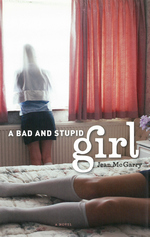
Brought together by chance, the girls soon become partners in a struggle to find their way in a world where neither Esther’s brains nor Siri’s beauty is enough. Never having been forced to work hard at anything, Siri must rely on Esther to teach her to learn and attend class. But as Siri wakes from her dream world to discover the life of the mind, Esther begins shedding her rational bonds to explore the mysteries of the soul. For both, some of the most devastating lessons in the attainment of worldly knowledge come from love.
Deadpan funny and bittersweet, A Bad and Stupid Girl is above all else a moving portrait of two friends helping each other to uncover the potential splendor of their lives.
“Jean McGarry's novel is a lovely locket of a book, with the picture inside not at all faded. Focused in close-up, succinct and convincing, it's a story about friendship and maturation, and about how our studies, alone, do not define us.”
—Ann Beattie
“Jean McGarry’s A Bad and Stupid Girl is an uncommonly Good and Bright-Indeed Novel, sharply written from start to finish and entertaining as Hell.”
—John Barth
“Everything in life is arbitrary yet must be over-determined in literature. Jean McGarry knows how to tell a persuasive tale illuminating these truths.”
—Harold Bloom
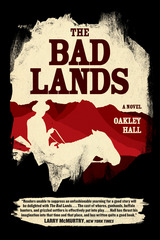
An action-packed western from one of the masters of the genre, Oakley Hall’s The Bad Lands blends roundups and rustlers, whorehouses and land grabs, shoot-outs and the threat of hangings in a tale of the war between the cowboys and the cattle barons. But more than this, it is an elegy to the wild beauty of the badlands before the ranchers moved in, chased off the free-rangers, the trappers, and the tribes, and fenced it all in.
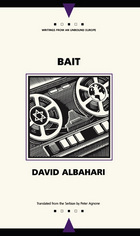
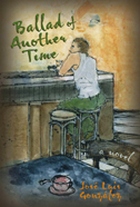
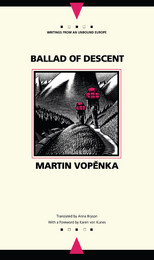
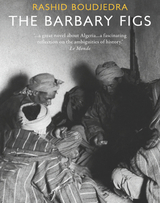
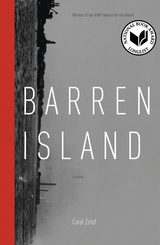
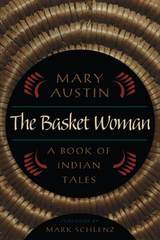
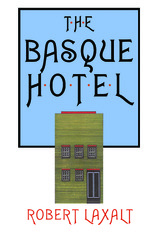
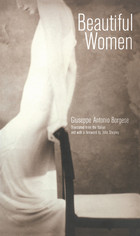
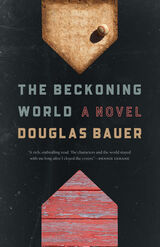
But dreams sometimes suffer from a lovely abundance, and in Earl’s case her name is Emily Marchand. They fall quickly and deeply in love, but with that love comes heartbreaking complications.
The Beckoning World gathers a cast of characters that include Babe Ruth and Lou Gehrig; a huge-hearted Pullman steward offering aphoristic wisdom; and countless others, not least of which is the 1918 Spanish flu taking vivid spectral form. At the center is a relentless love that Earl and Emily are defenseless against, allied as they are “in this business of their hearts.”
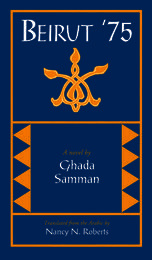
Ghada Samman’s first full-length novel, originally published in Arabic in 1974, is a creative and daring work prophetically depicting the social and political causes of the Lebanese civil war in 1975. The story opens in a taxi in which we meet the five central characters, each seeking something to give life meaning: security, fame, wealth, dignity, recognition, freedom from fear and from tradition-sanctioned, dehumanizing practices. Once they reach the capital city of Beirut, on which they’ve pinned their hopes, they all discover, man and woman alike, that they are victims of forces either partially or completely beyond their control, such as political corruption, class discrimination, economic and sexual exploitation, destruction of the natural environment, and blind allegiance to tradition.
Beirut ’75 addresses struggles of Arab society, particularly the Lebanese, but the message is one of the universal human condition. Thus, in addition to this superb English-language presentation, Samman’s novel has already appeared in German (two editions), French, and Italian versions.
Winner of The University of Arkansas Press Award for Arabic Literature in Translation.
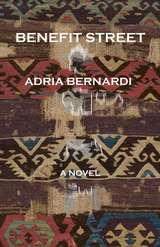
A universal story of exile, of the refugee and emigrant, and of all those displaced who can reconstruct a sense of home only by weaving a new fabric of the imagination
For nearly two decades, Şiva has met after work on Tuesdays with four friends at a teahouse called the Kafiye. In interrupted conversations, the women explore what it is to live engaged lives inside and outside the home. Amidst joking and complaints, while drinking too much tea and eating too many sweets, they tell of their days: a son’s ninth birthday, the bruise on the arm of an aging parent, soldiers stationed outside the school, the funeral of an opposition political leader killed in a mysterious car accident.
Set in an unnamed provincial capital of an unnamed country, Benefit Street tells of a wide circle of friends—teachers, lawyers, missionaries, doctors, artisans—in a time of gathering and dispersal. It tells the story of mothers, daughters, sisters, wives, colleagues, and neighbors, as war to the East threatens and constitutional rights are daily eroded by an increasingly authoritarian regime.
The ideals of youth, freedom, and coexistence are severely tested with the shocking revelation that the charismatic leader of their group has sexually abused the women under his care. The limits of reconciliation are tested as Şiva makes an arduous journey into the mountains to meet an estranged mother with a genius for weaving complex rugs.
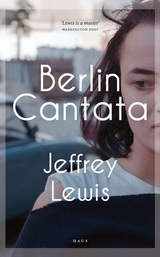
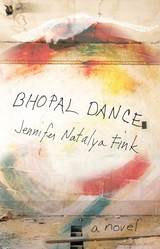
An imaginative, erotic rethinking of Bhopal’s disaster—and perhaps our own
On the night of December 2, in the midst of the Reaganomic era, an explosion at an American-owned factory in Bhopal, India, released untold amounts of toxic gas on uncounted numbers of people, creating a human and environmental disaster of insurmountable proportions. Known as the Bhopal disaster, it once dominated international headlines, and is now barely remembered.
Yet Bhopal remains emblematic of all the many quickly forgotten disasters that followed, and of the permanent state of globalized disaster in which we now dwell. What does it mean when corporations instead of states control not only the means to create environmental disasters, but also the tools to bury them? How does one revolt against these unelected entities? How do our most private desires get shaped by this stateless horror? Jennifer Natalya Fink’s Bhopal Dance is an epic and epochal tale of such a horror and its buried consequences.
At the center of the novel is Cordelia, an owlish woman with a ménage of lovers, who leads a revolutionary Canadian political movement catalyzed by the Bhopal disaster, only to end up imprisoned with just a toilet to talk to. Who she hallucinates is her father. Who is her father. Who is the State. Who may be her mother. Or her twin/lover. Cordelia is a remarkable bird in her own right, and ‘owlishness’ is a feathery conceit deployed in both the book’s form and content, a way of exploring queer possibilities for altering the terms of one’s imprisonment. For setting corporatized corporeality alight. Ablaze. Pets and punk rock, dentists and dyslexia, Shakespeare and salsa: they all dance together here.

Marream Krollos’s Big City is astructurally innovative work of prose composed of vignettes, verse, dialogues, monologues, and short stories. Alone, they are fragments, but together they offer a glimpse of the human condition and form a harmonized narrative of desire, loneliness, and beauty. Through language that builds, destroys, and violates, Krollos maps the geography of our contemporary condition, a haunting meditation on human togetherness and isolation.
Krollos plays with the tension between the voice of the lonely “I” produced by the urban experience and the polyphony of the city itself. A city is a chorus and a collection of traces; it is a way of being with others and the concretization of the social divisions that keep people apart. As a lifelong city dweller, Krollos is obsessed with the way that cities shape our experiences of the world, our ideas about inside and outside and self and other.
By mapping the emotional highs and lows of particular (though often anonymous) beings, the book creates a geography of the urban consciousness. The sensation of reading this lyric work of fiction is akin to how one experiences an attentive walk in an unknown city: one becomes attuned to the tenor of its many voices, how the languages lift and flourish, and how the micro and macro became integrally linked.
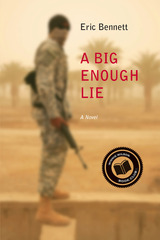
Awaiting a TV talk show appearance, John Townley is quaking with dread. He has published a best-selling memoir about the Iraq War, a page-turner climaxing in atrocity. In a green room beyond the soundstage, he braces himself to confront the charismatic soldier at the violent heart of it. But John has never actually seen the man before—nor served in Iraq, nor the military. Even so, and despite the deception, he knows his fabricated memoir contains stunning truths.
By turns comic, suspenseful, bitingly satirical, and emotionally potent, A Big Enough Lie pits personal mistruths against national ones of life-and-death consequence. Tracking a writer from the wilds of Florida to New York cubicles to Midwestern workshops to the mindscapes of Baghdad—and from love to heartbreak to solitary celebrity—Bennett’s novel probes our endlessly frustrated desire to grab hold of something (or somebody) true.
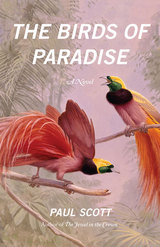
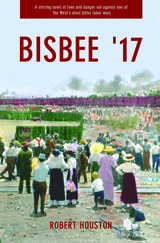
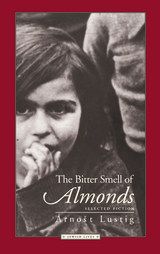
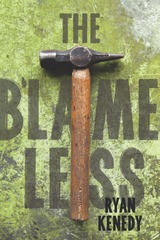
Meanwhile, having spent three decades serving a life sentence for murdering the California preacher who rescued him from the streets, Travis thinks of himself as a reformed man. Traveling from Folsom Prison to his new home in the Mojave Desert, a remote location with minimal temptations, he struggles to reconcile his past and embrace his newfound freedom. But there are more challenges to staying on the straight and narrow than he ever could have imagined.
Virginia’s and Travis’s braided narratives slowly tighten as they approach their inevitable collision. Unflinching, compassionate, and gripping, this bold novel evocatively examines the ambiguities wrought by both violence and redemption.
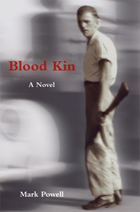
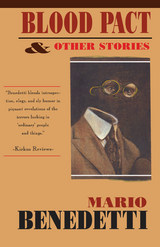
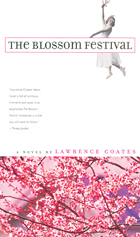
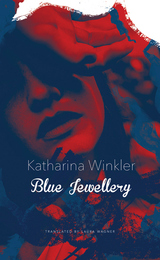
Blue jewelry is private property. Not to be seen. Not to be talked about. It is worn like a bracelet around the wrists, on ribs, legs, arms. Blue jewelry is another name for the marks left on women’s bodies, inflicted by the men around them.
This novel tells the story of Filiz and Yunus. When Filiz meets Yunus, he is young and beautiful, and Filiz is proud that he wants her. Against her father’s wishes, they marry when she is thirteen. Yunus is her entire universe, all encompassing, all powerful. Soon after the wedding, Filiz’s dream of living in the West with her husband, of escaping their small village in Anatolia for freedom and autonomy, comes crashing down around her. Yunus, only a few years older than his bride, turns their marriage into a prison of dependency and violence. Trapped in her mother-in-law’s house, Filiz is subjected to physical and mental abuse, forced to veil herself, and treated as a house slave. When she becomes pregnant, Filiz seems to have reached her breaking point. But she endures. When Yunus moves his young family first to Istanbul and then to Austria, the life he had once promised her seems to be within reach. But there is no escaping the spiral of violence and love, which, to Filiz, have become inseparable.
Katharina Winkler’s powerful story of a marriage dominated by violence gives voice to a tenacious young woman whose will to survive is never broken.
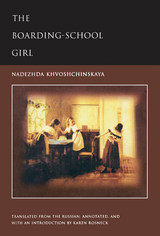
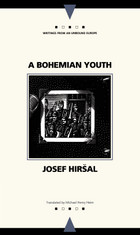
Josef Hiršal's experimental novel is a Dada-like romp through the life of a young man born into a Bohemian peasant family. Told in five parts, A Bohemian Youth begins with a word to the wise, moves on to the text, continues with notes and with notes to the note, and ends with a note on the notes to the notes.
More than just a tongue-in-cheek parody of a literary memoir, A Bohemian Youth is a glimpse of the First Czechoslovak Republic as seen through the eyes of a young peasant from the provinces. Abounding in intimate details--the manners of a servant girl, the habits of the town homosexual, the sounds of popular music; the way people eat in wartime—Hiršal's novel is a wrenching and hilarious tale of a young man's emotional and sexual awakening.
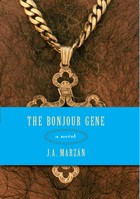
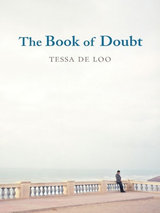
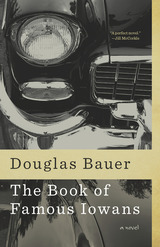
But mostly what Will summons up in his intimate remembrance are those few catastrophic days in early June when he was “three months shy of twelve,” more than a decade after his parents have married and returned to the Vaughns’ home place, where Lewis farms his family’s land. For it is during those days that Leanne’s affair with a local man named Bobby Markum becomes known—first to Lewis and then, in a fiercely dramatic public confrontation, to young Will, to his beloved Grandmother Vaughn, and by nightfall to all the citizens of the town. The knowledge of such scandal, in so small a place, sets off a series of highly charged reactions, vivid consequences that surely determine the fates of every member of this unforgettable family.
A tale of memory and hero worship and the restless pulse of longing, The Book of Famous Iowans examines those forces that define not only a state made up of a physical geography, but more important, those states of the wholly human spirit.
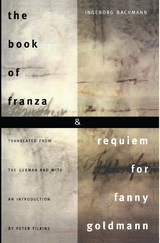

A novel about two teenage lovers who disrupt a World War II internment camp in Arizona
Kane Araki and Margaret Morri are not only the names of teenage lovers living in a World War II Japanese relocation camp. Kane Araki is also the name of a man who, mysteriously, sprouts a pair of black raven’s wings overnight. Margaret Morri is the name of the aging healer who treats embarrassing conditions (smelly feet and excessive flatulence). It’s also the name of an eleven-year-old girl who communes with the devil, trading human teeth for divine wishes.
In The Book of Kane and Margaret, dozens of Kane Arakis and Margaret Morris populate the Canal and Butte camp divisions in Gila River. Amidst their daily rituals and family dramas, they find ways to stage quiet revolutions against a domestic colonial experience. Some internees slip through barbed wire fences to meet for love affairs. Others attempt to smuggle whiskey, pornography, birds, dogs, horses, and unearthly insects into their family barracks. And another seeks a way to submerge the internment camp in Pacific seawater.
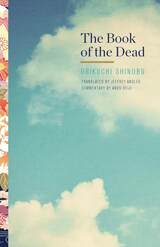
First published in 1939 and extensively revised in 1943, The Book of the Dead, loosely inspired by the tale of Isis and Osiris from ancient Egypt, is a sweeping historical romance that tells a gothic tale of love between a noblewoman and a ghost in eighth-century Japan. Its author, Orikuchi Shinobu, was a well-received novelist, distinguished poet, and an esteemed scholar. He is often considered one of the fathers of Japanese folklore studies, and The Book of the Dead is without a doubt the most important novel of Orikuchi’s career—and it is a book like no other.
Here, for the first time, is the complete English translation of Orikuchi’s masterwork, whose vast influence is evidenced by multiple critical studies dedicated to it and by its many adaptations, which include an animated film and a popular manga. This translation features an introduction by award-winning translator Jeffrey Angles discussing the historical background of the work as well as its major themes: the ancient origins of the Japanese nation, the development of religion in a modernizing society, and the devotion necessary to create a masterpiece. Also included are three chapters from The Mandala of Light by Japanese intellectual historian Andō Reiji, who places the novel and Orikuchi’s thought in the broader intellectual context of early twentieth-century Japan.
The Book of the Dead focuses on the power of faith and religious devotion, and can be read as a parable illustrating the suffering an artist must experience to create great art. Readers will soon discover that a great deal lies hidden beneath the surface of the story; the entire text is a modernist mystery waiting to be decoded.

Word spreads from one recovering self-inflicted eye surgery patient to the next of a mystical book capable of overturning the Burlingtonian empire.
Captivating and devious, the book of webs is constructed out of misremembered fragments, conflicting histories, and secrets whispered in the darkness. The insurgents tell of an enemy so powerful it owns the air, dictates reality, and has even managed to co-opt their thoughts. Their only hope is to conspire with the uprisings of their bodies: slips of the tongue, excretions, tics, bad hair days, and, most importantly, their dreams.
In this darkly comic and inventive debut novel, Jesse Kohn introduces a network of shape-shifters and misfits. A militant priestess broods over orphaned angel eggs. A post-punk band animates a messianic homunculus made of belly button lint. A failed dream journalist goes on a terrible first date to heaven. Each misadventure is a chapter in a book devised to oppose the despotic order of their enemy—the book of webs.
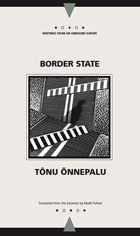
An immediate sensation upon its 1993 publication in Europe, already translated into more than a dozen languages, Border State is a brilliantly realized account of a man in the grip of Western excess, emotionally crippled by a world that is subsuming his own and inhabiting a West in which "all countries have become imaginary deserts of ruins where crowds of nomads roam from one attraction to the other." His tale, in which disillusion and murder become inextricably linked, is a compelling exploration of scarcity, longing, and madness.
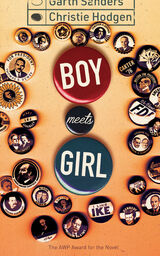
Boy Meets Girl is the story of a twenty-five-year friendship between Sammy Browne (young, idealistic, and broke) and Ben Eisenberg (older, jaded, and almost unimaginably rich)—two characters drawn together, and ultimately torn apart, by their differences. This novel tells the story of their relationship over the decades—from youthful flirtation to unrequited love, to long-term friendship that flourishes in middle age, to estrangement and then reunion. The novel unfolds in alternating chapters, toggling back and forth between Ben and Sammy as young people and in middle age, showing everything the characters hoped to become and how things turned out for them. Boy Meets Girl unfolds against the political and social backdrop of the last three decades, with Bill Clinton’s election, the events of September 11, the wars in Iraq and Afghanistan, and even the Trump era providing context and contrast for the personal stories of the main characters.
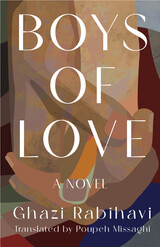
In Boys of Love, Ghazi Rabihavi offers both a universal story about the ups and downs of all relationships and a clear-eyed portrait of same-sex desire in Iran, where homosexuality remains punishable by death. Banned in Iran, the novel was initially published in Farsi in the UK, then translated into French and shortlisted for the Prix Médicis étranger. Rabihavi avoids both lasciviousness and exoticism in depicting a deep love between male characters living through the Iranian Cultural Revolution. Ultimately, this story challenges preconceived notions about marginalized communities in the Middle East.
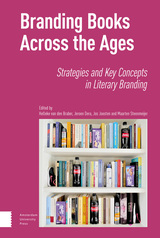
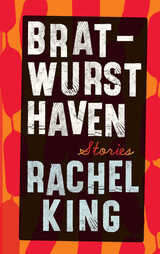
“An excellent collection that’s likely to appeal to fans of Alice Munro and Tobias Wolff.” —Kirkus Reviews
It’s almost a decade after the Great Recession, and in Colorado, St. Anthony Sausage has not recovered. Neither have its employees: a laid-off railway engineer, an exiled computer whiz, a young woman estranged from her infant daughter, an older man with cancer who lacks health care. As these low-wage workers interact under the supervision of the factory’s owner and his quietly rebellious daughter, they come to understand that in America’s postindustrial landscape, although they may help or comfort each other, they also have to do what’s best for themselves.
Over the course of these twelve interrelated stories, Rachel King gives life to diverse, complex, and authentic characters who are linked through the sausage factory and through their daily lives in a vividly rendered small town in Boulder County. The internal and external struggles of Bratwurst Haven’s population are immediately and intimately relatable and resonant: these people seek answers within the world they inhabit while questioning what it means to want more from their lives.
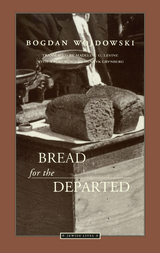

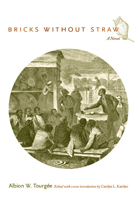
Bricks Without Straw is Tourgée’s fictionalized account of how Reconstruction was sabotaged. It is a chilling picture of violence against African Americans condoned, civil rights abrogated, constitutional amendments subverted, and electoral fraud institutionalized. Its plot revolves around a group of North Carolina freedpeople who strive to build new lives for themselves by buying land, marketing their own crops, setting up a church and school, and voting for politicians sympathetic to their interests, until Klan terrorism and the ascendancy of a white supremacist government reduce them to neo-slavery. This edition of Bricks Without Straw is enhanced by Carolyn L. Karcher’s introduction, which sets the novel in historical context and provides an overview of Albion W. Tourgée’s career, a chronology of the significant events of both the Reconstruction era and Tourgée’s life, and explanatory notes identifying actual events fictionalized in the novel.

An unflinching and riveting meditation on the pain that attends every facet of existence—love and sacrifice and intimacy and beauty—a biography of torture.
Like all of Vi Khi Nao’s acclaimed and award-winning work, A Brief Alphabet of Torture bleeds across many modes and genres—poetry, essay, fiction, drama—and itself almost constitutes a novel of a different kind. Each tale captures the emotional, physical, psychological, political, and artistic concerns that pervade life like breath and which, even when very beautiful, are filled with pain.
These stories are all facets of Nao’s imagination that define the way she views creation, sexuality, violence, and the role of life in an ontological system that relies heavily on cultural, social, and artistic duress. Some stories like “Winter Rose” and “I Love You Me Neither” rise above the boundaries of pain to places of beauty and grace and love, where pain has no place, but make clear how rare such moments appear in life.
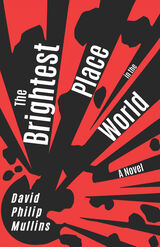
Inspired by true events, The Brightest Place in the World traces the lives of four characters haunted by an industrial disaster. On an ordinary sunny morning in 2012, a series of explosions level a chemical plant on the outskirts of Las Vegas. The shock waves are felt as far away as Fremont Street. Homes and businesses suffer broken windows and caved-in roofs. Hundreds are injured, and eight employees of the plant are unaccounted for, presumed dead.
One of the missing is maintenance technician Andrew Huntley, a husband and father who is an orbital force in the novel as those who loved him grapple with his loss. Andrew’s best friend, Russell Martin—an anxiety-plagued bartender who calms his nerves with a steady inflow of weed—misses him more than he might a brother. Meanwhile Emma, Russell’s wife—a blackjack dealer at a downtown casino—tries to keep her years-long affair with Andrew hidden. Simon Addison, a manager at the plant who could have saved Andrew’s life, is afflicted by daily remorse, combined with a debilitating knowledge of his own cowardice. And then there’s Maddie, Andrew’s only child, a model high-school student whose response to the tragedy is to experiment with shoplifting and other deviant behavior.
Against the sordid backdrop of Las Vegas—and inspired by the PEPCON disaster of May 4, 1988—this engaging novel is a story of grief and regret, disloyalty and atonement, infatuation and love.
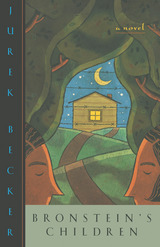
"[A] chilly, disquieting novel about historical slippage; about the seemingly inevitable decline of horror into a vague and generic recollection. The East German writer has devised something between story and allegory to evoke the cold generational millennium that separates a father, with his concentration-camp memories, from a son, adrift in a society with no memories whatsoever."—Richard Eder, Los Angeles Times Book Review
"Mr. Becker, writing simply and clearly in an unstrained narrative, speaks with the voice of knowledge, and we do well to listen to him."—Eva Figes, New York Times Book Review
Jurek Becker (1937-1998) is the author of Jacob the Liar, Sleepless Days, The Boxer, and Amanda Herzlos.
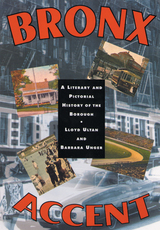
Bringing together a variety of past literary figures as well as emerging talents, this comprehensive book captures the Zeitgeist of the neighborhood through the eyes of its writers. Included are selections from the writings of Jack Kerouac, Mark Twain, James Baldwin, James Fenimore Cooper, Tom Wolfe, Herman Wouk, Theodore Dreiser, Washington Irving, Clifford Odets, Cynthia Ozick, Grace Paley, Edgar Allan Poe, Chaim Potok, Kate Simon, Leon Trotsky, and Sholem Aleichem.
Lloyd Ultan and Barbara Unger place the literature of these and other writers in historical context and reproduce one hundred vintage photographs that bring the writings to life. Filtered through the imaginations of authors of different times, ethnic groups, social classes, and literary styles, the borough of The Bronx emerges not only as a shaper of destinies and lives, but as an important literary mecca.
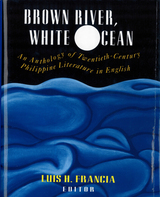
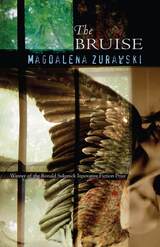
The Bruise is a prize-winning novel of imperative voice and raw sensation. In the sterile dormitories and on the quiet winter greens of an American university, a young woman named M— deals with the repercussions of a strange encounter with an angel, one that has left a large bruise on her forehead. Was the event real or imagined? The bruise does not disappear, forcing M— to confront her own existential fears and her wavering desire to tell the story of her imagination. As a writer, M— is breathless, desperate, and obsessive, questioning the mutations and directions of her words while writing with fevered immediacy. Using rhythmic language, suffused with allusions to literature and art, Magdalena Zurawski recasts the bildungsroman as a vibrant and moving form.
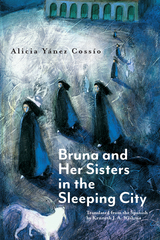
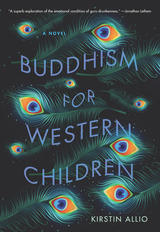
In search of community and transcendence, ten-year-old Daniel’s family is swept into the thrall of a potent and manipulative guru. To his followers, Avadhoot Master King Ivanovich is a living god, a charismatic leader who may reveal enlightenment as he mesmerizes, and alchemizes, Eastern and Western spiritual traditions.
Daniel’s family plunges into a world with different rules and rhythms—and with no apparent exit. They join other devotees in shunning the outside world, and fall under the absolutist authority of the guru and his lieutenants. Daniel bears witness to the relentless competition for the guru’s favor, even as he begins to recognize the perversion of his spirituality. Soon, Daniel himself is chosen to play a role. As tensions simmer and roil, darkness intrudes. Devotees overstep, placing even the children in jeopardy. Daniel struggles with conflicting desires to resist and to belong, until finally he must decide who to save and who to abandon.
With spiraling, spellbinding language, Allio reveals a cast of vivid, often darkly funny characters, and propels us toward a shocking climax where Daniel’s story cracks open like a kaleidoscope, revealing the costs of submitting to a tyrant and the shimmering resilience of the human spirit.
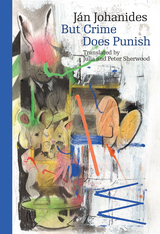
“So, as you see, I am familiar with the case. However, we can’t discuss it unless you learn more about some other court cases, so that you can compare your father’s trial with other, more baffling cases, and see it in the context of the madness that reigned at the time.”
Ján Johanides’ riveting Slovak novel immediately thrusts you into the midst of a bewildering second-person dialogue, bestowing the reader with the role of a silent partner in a one-sided conversation with a mysterious archivist. As the story unfurls piece by piece, it becomes clear that the archivist, who can’t seem to stay on topic, has both a tragic history and the key to unlocking your family’s darkest secret, a secret that may or may not involve the Czechoslovak secret police, American and Soviet intelligence, Israeli politics, and a tire full of dollars.
Set after the fall of the Soviet Union and the dissolution of Czechoslovakia, But Crimes Do Punish is awash with paranoia, revealing how the madness of the Communist era continues to bleed into the instability of the present. Written in 1995, this haunting novel—the first work of Slovak fiction published by Karolinum Press—evokes the spirit of John le Carré and the style of Carlos Fuentes while illuminating issues that still plague post-Communist Europe.
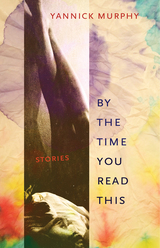
A gathering of luminescent stories that illustrates how fraught and contingent the simplest of lives can be, and the often unexpected means available to each of us for our own salvation
The truths revealed and the lives upended in the 13 stories that make up Yannick Murphy’s By the Time You Read This are at once singularly foreign and uncannily familiar. A wife pens a series of suicide notes to her family that verge on the comic, hovering between the tyrannical and the absurd. A mother obsesses over what her child eats. A young girl left with caretakers in New York draws on her potent imagination with consequences in real life that are both liberating and disastrous. In a college application essay a young woman finally begins to make sense of the troubling vicissitudes of her existence. A young French girl departs for America with her reprehensible beau to find she’s as much a stranger to herself abroad as she was at home. As with her previous novels and story collections, Murphy’s keen rendering of these disparate, complex lives illuminate in ways both quiet and startling our capacity for deliverance and devastation through daring acts of self-invention.
READERS
Browse our collection.
PUBLISHERS
See BiblioVault's publisher services.
STUDENT SERVICES
Files for college accessibility offices.
UChicago Accessibility Resources
home | accessibility | search | about | contact us
BiblioVault ® 2001 - 2024
The University of Chicago Press









